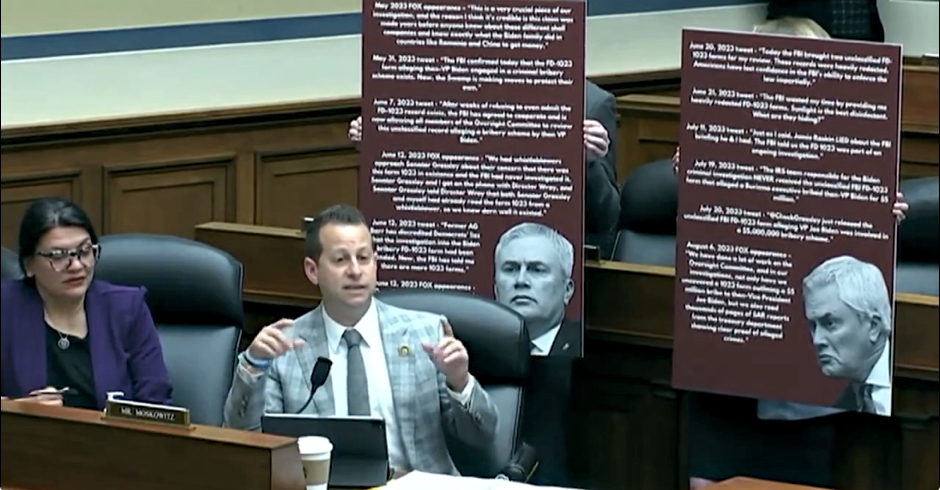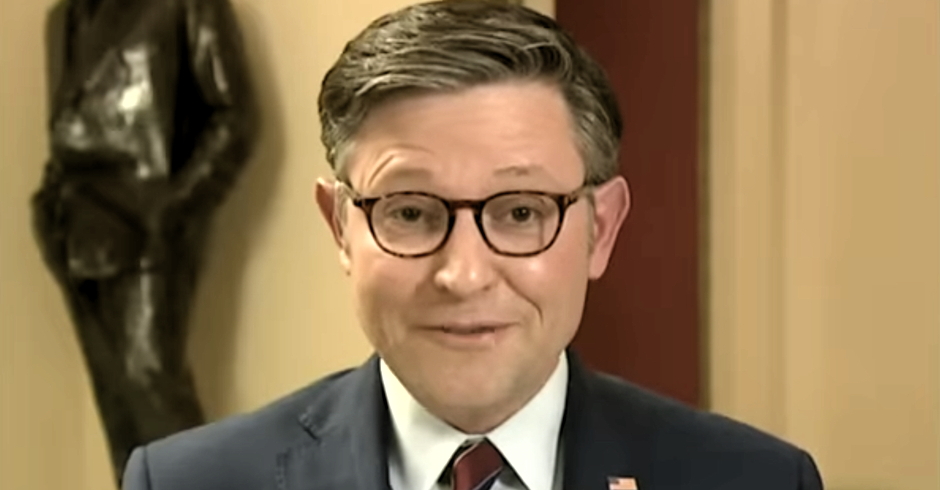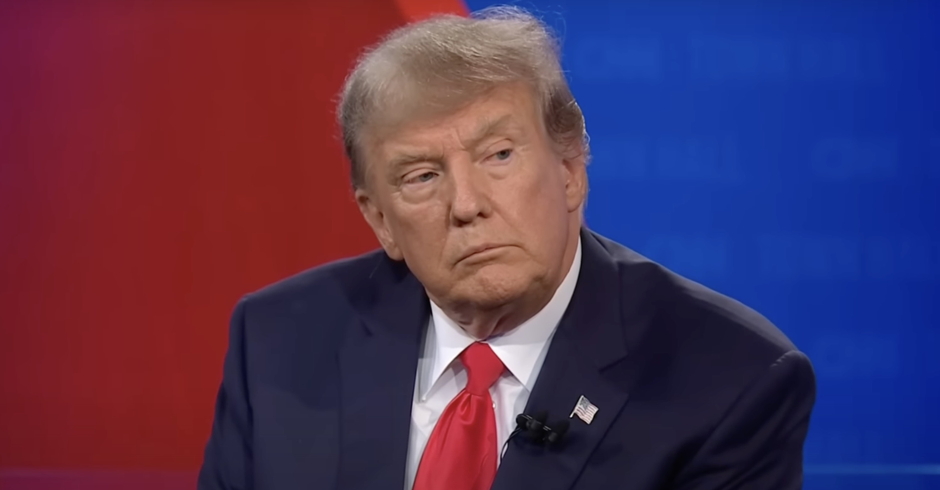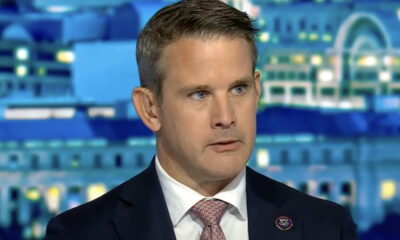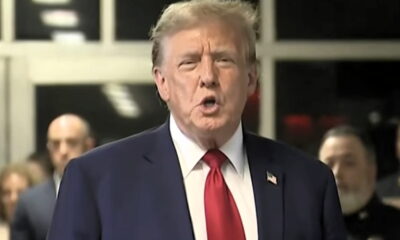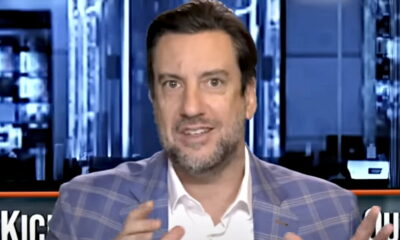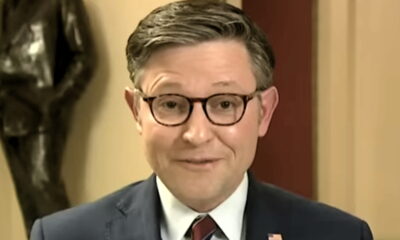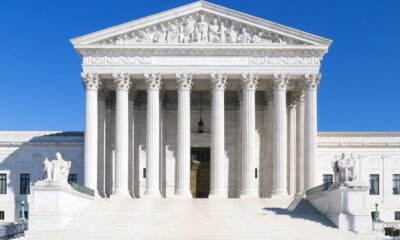News
Will Acceptance of LGBT People Break the United Methodist Church Apart?
The recent decision of the United Methodist Church to defer a decision on the role of LGBT people in the church is a desperate attempt to avoid schism in the bitterly divided denomination. It is not likely to succeed.
In May 2016, the quadrennial General Conference of the United Methodist Church (UMC) decided to defer the question of whether LGBT people can be full participants in the church. Rather than vote on more than 100 petitions that had been submitted on the question of human sexuality, the Conference delegates voted 428 to 405 to accept the recommendation of the Council of Bishops to suspend a debate on homosexuality pending the report of a proposed special commission that will examine and possibly recommend revisions of every paragraph in the Book of Discipline ”the denomination’s governing document“-related to human sexuality. The commission will issue its report prior to the 2020 General Conference.
The move is a desperate attempt to forestall schism in the nation’s second largest Protestant denomination, and the largest denomination in the wider Methodist movement. With a membership of about 7 million in the United States, and more than 4 million in Africa, Europe, and Asia, the United Methodist Church is the last of the mainline Protestant denominations in America to prohibit non-celibate LGBT church leaders and to oppose same-sex marriage.
The delaying tactic may forestall a formal schism for a year or two, but it is unlikely to succeed longer than that. The denomination’s internal contradictions and the depth of disagreements will likely propel a split into at least two denominations with strikingly different views of homosexuality and gay people.
Open Hearts, Open Minds?
In 2001, intent on reversing years of declining membership and countering a perception of conservative religious denominations as close-minded and intolerant, the United Methodist Church launched an advertising campaign, “Open Hearts, Open Minds, Open Doors.” The campaign was intended to suggest that Methodists, unlike, say, Southern Baptists, welcomed a diverse membership, including LGBT people.
For a while, the campaign was very successful, but when in 2005 a minister in Virginia denied membership to a gay man who had been invited to join the church choir, many people came to regard the denomination’s slogan as laughable, especially when the denomination’s Judicial Council upheld the minister’s right to deny membership on the basis of the man’s sexual orientation. The “Open Hearts, Open Minds slogan was even mocked by an ad for another, more truly accepting denomination, the United Church of Christ.
In response to the widespread mockery occasioned by this highly publicized and embarrassing incident, the UMC’s Council of Bishops issued a pastoral letter stating that “homosexuality is not a barrier” to membership. The pastoral letter, however, did nothing to reverse the minister’s decision to deny membership to the gay man.
The “Open Hearts, Open Minds, Open Doors” campaign failed because it quickly became apparent that the denomination’s public relations message is contradicted by the reality of its actual positions on homosexuality and LGBTÂ people.
Contradictory Policies
The contradictions in the policies of the UMC toward homosexuality reveal a level of uncertainty and inconsistency (if not hypocrisy) that reflects the divisions within the denomination on the question of human sexuality.
For example, the denomination’s website contains a number of resolutions passed by its various committees and conferences, some of which extend welcome to all people and affirm their sacred worth. The denomination has even passed resolutions opposing homophobia and discrimination on the basis of sexual orientation.
Those resolutions, however, apparently do not apply to the denomination itself. The church’s “Book of Discipline,” for example, pointedly declares, “The United Methodist Church does not condone the practice of homosexuality and considers this practice incompatible with Christian teaching.”
The church also forbids the ordination of practicing homosexuals: “While persons set apart by the Church for ordained ministry are subject to all the frailties of the human condition and the pressures of society, they are required to maintain the highest standards of holy living in the world. The practice of homosexuality is incompatible with Christian teaching. Therefore self-avowed practicing homosexuals are not to be certified as candidates, ordained as ministers, or appointed to serve in The United Methodist Church.”
In addition, the “Book of Discipline” declares that “Ceremonies that celebrate homosexual unions shall not be conducted by our ministers and shall not be conducted in our churches.”
Moreover, the denomination forbids the use of United Methodist funds “to promote the acceptance of homosexuality.”
Church Trials and Civil Disobedience
The denomination has in recent years been roiled by church trials of sexually active gay clergy and of ministers who have officiated at same-sex marriages or commitment ceremonies, as well as by open defiance of the Book of Discipline’s homophobic regulations.
In the 1990s and early 2000s, church trials over gay issues were rare, but they almost always resulted in convictions. The Rev. Greg Dell, the Rev. Jimmy Creech, and the Rev. Beth Stroud were all defrocked either for their ministry to gay people or for their engaging in homosexual sexual activity.
In 2004, however, the case of Rev. Karen T. Dammann, pastor of a United Methodist Church in Ellensburg, Washington, signaled a change on the part of some UMC clergymembers. She was tried for having come out as a lesbian to her bishop. She explained that when she was ordained she did not realize that she was a lesbian, but that she had since entered into a lesbian relationship.
In response, her Bishop ordered her to stand trial for violating the prohibition against non-celibate gay clergy. The trial, however, was less a prosecution of Rev. Damman than a probing examination of the prohibition. She was acquitted by a jury of 13 fellow clergy members.
More recently, the most publicized of the church trials resulted in a conviction. On November 18, 2013, the Rev. Frank Schaefer of Lebanon, Pennsylvania was convicted for having officiated the same-sex wedding of his son, Tim Schaefer.
A month later, Rev. Schaefer was assessed a penalty of a 30-day suspension and told that if he would not agree to uphold the “Book of Discipline” in its entirety, he must surrender his credentials. When he refused to do so, he was defrocked.
The jury’s sentence was too clever by half. In effect, it defrocked Schaefer, but attempted to make it seem that the decision was his, not theirs. During the penalty phase of the trial, Schaefer made it clear that he would not retreat. He told the court, “I cannot go back to being silent. I am now an advocate for LGBT people in the world and in the church.”
On June 24, 2014, an Appeals Committee overturned Schaefer’s defrocking. The Committee did not reverse Schaefer’s conviction, but decided that the “compound penalty the Trial Court fashioned . . . is not within the range of penalties authorized.” It ruled that no penalty, “let alone the enhanced penalty of a withdrawal of credentials,” may be predicated on “a future possibility, which may or may not occur, rather than a past or present act.”
The purpose of the trial and defrocking of Schaefer was to intimidate other pastors from officiating at same-sex weddings. However, it instead galvanized a wave of Methodist ministers to step forward to disobey church prohibitions against marrying and ordaining openly gay people. Indeed, while Schaefer was awaiting trial for performing his son’s marriage ceremony, 36 other UMC pastors showed their solidarity with him by officiating at the wedding of two men in Philadelphia.
On October 26, 2013, retired United Methodist Church Bishop Melvin Talbert presided over the wedding of Bobby Prince and Joe Openshaw in Birmingham, Alabama. Prince and Openshaw are members of the United Methodist Church, but their local bishop, Debra Wallace-Padgett, refused to allow a minister under her jurisdiction to perform the ceremony. In response, Bishop Talbert volunteered his services.
In officiating at the Prince-Openshaw wedding, Bishop Talbert became the first UMC bishop to publicly perform a marriage for a same-sex couple.
[In the video below, Bishop Talbert expresses disappointment with the failure of the 2012 General Conference to remove the homophobic language from the Book of Discipline and declares that he will pursue acts of “Biblical obedience” and defy the denomination’s unjust laws.]
“All my life I have been an outspoken person for justice. I just see this as a continuing effort on my part to be faithful to the gospel, to speak truth and to do it out of love,” Talbert said in a statement explaining his decision. “It is no more than what I did in 1960 when I sat in at a lunch counter and refused to obey the unjust law of segregation. It’s the same. The principle is the same.”
He later officiated at a same-sex wedding in Charlotte, North Carolina in April 2016, where he and co-officiant the Rev. Val Rosenquist married John Romano and Jim Wilborne. Rosenquist said of her decision to violate church law: “Pastoral care means providing the resources of the church for the spiritual development [of her congregants] and their claiming of the faith and marriage is claiming this gift of the love of God. How could one deny that?”
Soon after the Schaefer trial, which generated a great deal of negative publicity for the denomination, several presiding bishops announced that they would no longer permit trials based on complaints regarding a pastor’s sexual orientation or officiating at same-sex weddings.
Hence, the trial of the Rev. Dr. Thomas Ogletree, a United Methodist Church clergyman and former Dean of Yale Divinity School, was averted at the last minute. He had been charged with violating the “Book of Discipline” when he conducted the wedding of his son Thomas Rimbey Ogletree to Nicholas W. Haddad at the Yale Club in New York on October 20, 2012. A wedding announcement in the New York Times prompted a group of conservative ministers to file a complaint.
Like Bishop Talbert, Ogletree was also active in the Civil Rights movement. His first civil disobedience arrest was at a segregated lunch counter with African-American colleagues, including John Lewis, who would later become a revered Congressman.
As Ogletree explained, “My experiences in the Civil Rights movement have illumined my responses to what I perceive to be unjust disciplinary rules in the United Methodist Church, especially rules that denied my right to officiate at my own son’s wedding. As a heterosexual, married clergyman I have a unique opportunity and obligation to challenge the inequitable treatment of gay and lesbian persons, both in church practices and also in the wider society. As Dr. Martin Luther King, Jr. reminded us in his ‘Letter from a Birmingham Jail,’ ‘One has a moral responsibility to disobey unjust laws.'”
Just as Ogletree’s trial was to begin, on March 10, 2014, New York Bishop Martin McLee announced that the charges had been dropped. In addition, Bishop McLee called on church officials to stop prosecuting other pastors for marrying same-sex couples and pledged that he would cease church trials over the issue in his district.
Since then, charges have been filed against a dozen or so clergy for either being openly gay or having officiated at a same-sex wedding. However, few of these have actually gone to trial.
When a complaint was filed against a Wisconsin pastor, the Rev. Janet Ellinger, for having officiated at the same-sex wedding of two couples, Bishop Hee-Soo Jung, rather than subjecting her to a trial, required her to address clergy to offer “an admission, explanation, and apology†for her actions. In response, she told the gathered clergy that her actions harmed no one. “My regret is for the spiritual violence and discrimination that is in the air we breathe as United Methodists because of our discrimination against gay, lesbian, bisexual, transgender, and queer persons.â€
 “It was a faithful decision to officiate at the wedding of these couples. It was both my honor and my joy to do so,†she added.
Perhaps most crucially, an increasing number of jurisdictions (“Conferencesâ€) have openly repudiated the “Book of Discipline’s” anti-gay regulations. They have not only rejected the notion that the practice of homosexuality is incompatible with Christian teaching, but also the denomination’s prohibition of non-celibate clergy and same-sex marriage ceremonies.
For example, on the eve of the May 2016 quadrennial General Conference, the Boards of Ordained Ministry of the Pacific Northwest, the Baltimore-Washington, and New York Annual Conferences announced that they would no longer consider sexual orientation a barrier to ordination.
Moreover, in the same week, 116 UMC clergy and candidates for clergy came out publicly as gay, bisexual, transgender, or queer. Their coming out was greeted by a letter from 500 openly LGBT clergy, future pastors, and faith leaders in a number of different denominations, offering them “much love and light.â€
UMC’s First Openly Gay Bishop
In what may be the most provocative act of civil disobedience challenging the homophobia of the “Book of Discipline” came on July 15, 2016, when the Rev. Karen Oliveto, senior pastor of Glide Memorial Church in San Francisco, was elected Bishop by UMC’s Western Jurisdictional Conference (composed of the states of Alaska, Arizona, California, Colorado, Hawaii, Idaho, Montana, Nevada, Oregon, Utah, Washington and Wyoming).
Oliveto, a graduate of Drew University and the Pacific School of Religion in Berkeley, is married to a deaconess, Robin Ridenour. The two have been in a relationship for 17 years. Oliveto has served as a campus minister at San Francisco State, as pastor of Bethany United Methodist in San Francisco, and as a faculty member at the Pacific School of Religion. She has been at Glide, a famously gay-friendly and notably diverse church, since 2008.
[In the video below, the Rev. Karen Oliveto discusses the divisions with the United Methodist Church and the 2016 General Conference.]
There is no question as to her qualifications for the position of Bishop, but, in addition to celebration of her election and consecration, there was also immediate negative reaction as well.
The Rev. Rob Renfroe, president of Good News, a group that lobbies for strict enforcement of the “Book of Discipline’s” policies in regard to homosexuality, said the election and other recent actions by annual conferences ignored the Council of Bishops’ proposal for a commission to examine all church law dealing with human sexuality.
“Instead, these conferences have moved ahead with legislative enactments pledging non-conformity with the Book of Discipline, culminating in the election of a practicing homosexual as bishop,†said Renfroe. He added ominously, “If the Western Jurisdiction wanted to push the church to the brink of schism, they could not have found a more certain way of doing so.â€
Bishop Bruce R. Ough, president of the Council of Bishops, said the election of Oliveto would be seen by some as a violation of Church law and a significant step toward schism, while others will consider it a milestone toward becoming a more inclusive church.
“Our differences are real and cannot be glossed over, but they are also reconcilable,†Ough added.
Can Schism Be Averted?
Although Bishop Ough expressed confidence that the differences within the UMC can be reconciled, agreement on so divisive an issue as homosexuality is not likely. The denomination has been debating the issue for 50 years and has reached no consensus, in part because conservatives have blocked every attempt to forge a compromise.
While American members of the UMC are by a slight plurality in favor of reform, most of the denomination’s recent growth has been in Africa, where homosexuality remains taboo. Indeed, it is believed that the attempt at the 2012 General Conference to enact a compromise that would have amended the “Book of Discipline” so as to acknowledge that the denomination was divided on the question of homosexuality was defeated by the delegates from Africa voting in concert with the American traditionalists.
It is clear that the traditionalists are frustrated with what they see as the lawlessness of the reformers and that the reformers are no longer willing to honor patently homophobic language and policy within the denomination. Since efforts to reach a compromise have repeatedly been thwarted by conservatives, progressives have resorted to civil disobedience and defiance.
More than 750 American UMC congregations have publicly identified themselves as “reconciling congregations” that welcome all persons, regardless of sexual orientation, to participate fully in congregational life. In addition, many campus ministries, annual conferences, and other UMC groups have issued “reconciling†statements. In some jurisdictions, UMC pastors so routinely perform same-sex weddings that it makes no news or incurs any complaints.
In effect, there are already two American United Methodist denominations. One, largely urban, and bicoastal, embraces social justice and civil rights for LGBT people as a religious and moral as well as a social principle. The other, largely rural and Southern, clings to a traditional interpretation of the Bible’s “clobber passages†and accepts the “Book of Discipline” as a binding authority. It is unlikely that these two branches can coexist very long under a single rubric.
The branches are supposed to be united by a shared belief in the “Wesleyan Quadrilateral,” a reliance on scripture, tradition, reason, and experience in reaching moral and theological conclusions. The quadrilateral frames Methodist thought as less literalistic and more flexible than some other theologies because it provides for the possibility of change after discernment. Yet, it is clear that the two factions clashing over homosexuality in the church value the four legs of the quadrilateral differently and reach quite different conclusions as a result of their reflections.
As a recent Public Religion Research Institute report indicated, the continuing decline of church attendance and membership, especially among millennials, is related to the fraught relationship between conservative denominations and LGBT people and issues. Urban UMC churches know that the perception of homophobia seriously affects their ability to attract and minister not only to young people, but to the growing demographic of all ages that is supportive of equal rights for LGBT people, including marriage equality.
Historically, Methodists are prone to schism, sometimes over doctrinal differences and sometimes over social issues, such as slavery and the ordination of women. Schism over the participation of LGBT people in the church would hardly be unprecedented.
There is a slim possibility that the Council of Bishops could craft language that would allow both conservatives and progressives to remain happily in the denomination, but conservatives have rejected all previous efforts of accommodation. Most likely, the two factions will soon begin negotiating the terms by which they part ways.
Image by scottlum via Flickr and a CC license
Enjoy this piece?
… then let us make a small request. The New Civil Rights Movement depends on readers like you to meet our ongoing expenses and continue producing quality progressive journalism. Three Silicon Valley giants consume 70 percent of all online advertising dollars, so we need your help to continue doing what we do.
NCRM is independent. You won’t find mainstream media bias here. From unflinching coverage of religious extremism, to spotlighting efforts to roll back our rights, NCRM continues to speak truth to power. America needs independent voices like NCRM to be sure no one is forgotten.
Every reader contribution, whatever the amount, makes a tremendous difference. Help ensure NCRM remains independent long into the future. Support progressive journalism with a one-time contribution to NCRM, or click here to become a subscriber. Thank you. Click here to donate by check.
 |

